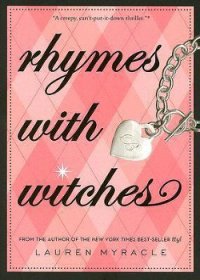The Silver Chair - Lewis Clive Staples (читать полные книги онлайн бесплатно .txt) 📗

Жалоба
Напишите нам, и мы в срочном порядке примем меры.
The Silver Chair - Lewis Clive Staples (читать полные книги онлайн бесплатно .txt) 📗 краткое содержание
King Caspian's beloved son Prince Rilian has disappeared. Aslan sends Eustace and his school friend Jill to Narnia on a quest to search for the young prince and defeat the evil Witch.
English years: 1942
Narnian years: 2356
The Silver Chair читать онлайн бесплатно
THE SILVER CHAIR
CHAPTER ONE.
BEHIND THE GYM
IT was a dull autumn day and Jill Pole was crying behind the gym.
She was crying because they had been bullying her. This is not going to be a school story, so I shall say as little as possible about Jill's school, which is not a pleasant subject. It was “Co-educational,” a school for both boys and girls, what used to be called a “mixed” school; some said it was not nearly so mixed as the minds of the people who ran it. These people had the idea that boys and girls should be allowed to do what they liked. And unfortunately what ten or fifteen of the biggest boys and girls liked best was bullying the others. All sorts of things, horrid things, went on which at an ordinary school would have been found out and stopped in half a term; but at this school they weren't. Or even if they were, the people who did them were not expelled or punished. The Head said they were interesting psychological cases and sent for them and talked to them for hours. And if you knew the right sort of things to say to the Head, the main result was that you became rather a favourite than otherwise.
That was why Jill Pole was crying on that dull autumn day on the damp little path which runs between the back of the gym and the shrubbery. And she hadn't nearly finished her cry when a boy came round the corner of the gym whistling, with his hands in his pockets. He nearly ran into her.
“Can't you look where you're going?” said Jill Pole.
“All right,” said the boy, “you needn't start—” and then he noticed her face. “I say, Pole,” he said, “what's up?”
Jill only made faces; the sort you make when you're trying to say something but find that if you speak you'll start crying again.
“It's Them, I suppose—as usual,” said the boy grimly, digging his hands farther into his pockets.
Jill nodded. There was no need for her to say anything, even if she could have said it. They both knew.
“Now, look here,” said the boy, “there's no good us all—”
He meant well, but he did talk rather like someone beginning a lecture. Jill suddenly flew into a temper (which is quite a likely thing to happen if you have been interrupted in a cry).
“Oh, go away and mind your own business,” she said. “Nobody asked you to come barging in, did they? And you're a nice person to start telling us what we all ought to do, aren't you? I suppose you mean we ought to spend all our time sucking up to Them, and currying favour, and dancing attendance on Them like you do.”
“Oh, Lor!” said the boy, sitting down on the grassy bank at the edge of the shrubbery and very quickly getting up again because the grass was soaking wet. His name unfortunately was Eustace Scrubb, but he wasn't a bad sort.
“Pole!” he said. “Is that fair? Have I been doing anything of the sort this term? Didn't I stand up to Carter about the rabbit? And didn't I keep the secret about Spivvins—under torture too? And didn't I—”
“I d-don't know and I don't care,” sobbed Jill.
Scrubb saw that she wasn't quite herself yet and very sensibly offered her a peppermint. He had one too. Presently Jill began to see things in a clearer light.
“I'm sorry, Scrubb,” she said presently. “I wasn't fair. You have done all that—this term.”
“Then wash out last term if you can,” said Eustace. “I was a different chap then. I was—gosh! what a little tick I was.”
“Well, honestly, you were,” said Jill.
“You think there has been a change, then?” said Eustace.
“It's not only me,” said Jill. “Everyone's been saying so. They've noticed it. Eleanor Blakiston heard Adela Pennyfather talking about it in our changing room yesterday. She said, `Someone's got hold of that Scrubb kid. He's quite unmanageable this term. We shall have to attend to him next.'”
Eustace gave a shudder. Everyone at Experiment House knew what it was like being “attended to” by Them.
Both children were quiet for a moment. The drops dripped off the laurel leaves.
“Why were you so different last term?” said Jill presently.
“A lot of queer things happened to me in the hols,” said Eustace mysteriously.
“What sort of things?” asked Jill.
Eustace didn't say anything for quite a long time. Then he said:
“Look here, Pole, you and I hate this place about as much as anybody can hate anything, don't we?”
“I know I do,” said Jill.
“Then I really think I can trust you.”
“Dam' good of you,” said Jill.
“Yes, but this is a really terrific secret. Pole, I say, are you good at believing things? I mean things that everyone here would laugh at?”
“I've never had the chance,” said Jill, “but I think I would be.”
“Could you believe me if I said I'd been right out of the world—outside this world—last hols?”
“I wouldn't know what you meant.”
“Well, don't let's bother about that then. Supposing I told you I'd been in a place where animals can talk and where there are—er—enchantments and dragons—and well, all the sorts of things you have in fairy-tales.” Scrubb felt terribly awkward as he said this and got red in the face.
“How did you get there?” said Jill. She also felt curiously shy.
“The only way you can—by Magic,” said Eustace almost in a whisper. “I was with two cousins of mine. We were just—whisked away. They'd been there before.”
Now that they were talking in whispers Jill somehow felt it easier to believe. Then suddenly a horrible suspicion came over her and she said (so fiercely that for the moment she looked like a tigress):
“If I find you've been pulling my leg I'll never speak to you again; never, never, never.”
“I'm not,” said Eustace. “I swear I'm not. I swear by everything.”
(When I was at school one would have said, “I swear by the Bible.” But Bibles were not encouraged at Experiment House.)
“All right,” said Jill, “I'll believe you.”
“And tell nobody?”
“What do you take me for?”
They were very excited as they said this. But when they had said it and Jill looked round and saw the dull autumn sky and heard the drip off the leaves and thought of all the hopelessness of Experiment House (it was a thirteen-week term and there were still eleven weeks to come) she said:
“But after all, what's the good? We're not there: we're here. And we jolly well can't get there. Or can we?”
“That's what I've been wondering,” said Eustace. “When we came back from That Place, Someone said that the two Pevensie kids (that's my two cousins) could never go there again. It was their third time, you see. I suppose they've had their share. But he never said I couldn't. Surely he would have said so, unless he meant that I was to get back? And I can't help wondering, can we—could we—?”
“Do you mean, do something to make it happen?”
Eustace nodded.
“You mean we might draw a circle on the ground—and write in queer letters in it—and stand inside it—and recite charms and spells?”
“Well,” said Eustace after he had thought hard for a bit. “I believe that was the sort of thing I was thinking of, though I never did it. But now that it comes to the point, I've an idea that all those circles and things are rather rot. I don't think he'd like them. It would look as if we thought we could make him do things. But really, we can only ask him.”
“Who is this person you keep on talking about?”
“They call him Aslan in That Place,” said Eustace.
“What a curious name!”
“Not half so curious as himself,” said Eustace solemnly. “But let's get on. It can't do any harm, just asking. Let's stand side by side, like this. And we'll hold out our arms in front of us with the palms down: like they did in Ramandu's island—”
“Whose island?”
“I'll tell you about that another time. And he might like us to face the east. Let's see, where is the east?”
The Silver Chair отзывы
Отзывы читателей о книге The Silver Chair, автор: Lewis Clive Staples. Читайте комментарии и мнения людей о произведении.
Уважаемые читатели и просто посетители нашей библиотеки! Просим Вас придерживаться определенных правил при комментировании литературных произведений.
- 1. Просьба отказаться от дискриминационных высказываний. Мы защищаем право наших читателей свободно выражать свою точку зрения. Вместе с тем мы не терпим агрессии. На сайте запрещено оставлять комментарий, который содержит унизительные высказывания или призывы к насилию по отношению к отдельным лицам или группам людей на основании их расы, этнического происхождения, вероисповедания, недееспособности, пола, возраста, статуса ветерана, касты или сексуальной ориентации.
- 2. Просьба отказаться от оскорблений, угроз и запугиваний.
- 3. Просьба отказаться от нецензурной лексики.
- 4. Просьба вести себя максимально корректно как по отношению к авторам, так и по отношению к другим читателям и их комментариям.
Надеемся на Ваше понимание и благоразумие. С уважением, администратор mybrary.info.


